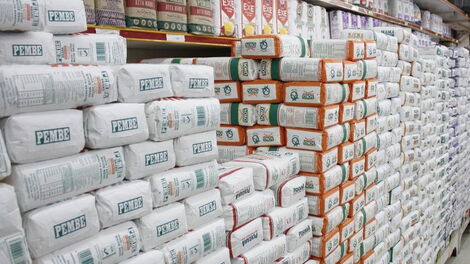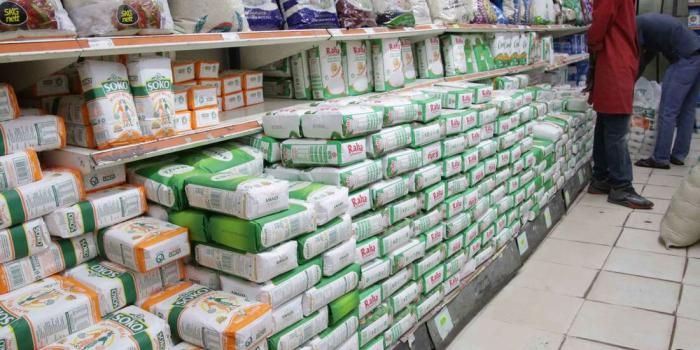Agriculture Cabinet Secretary, Peter Munya, has suspended the Ksh100 maize flour subsidy programme.
According to a statement dated Saturday, August 13, Munya cited inadequate funds from the National Treasury as the reason for suspending the subsidy programme.
The suspension means millers can now sell maize flour at prices of their determination.
Before the subsidy kicked in, a 2kg packet of maize flour was retailing for as high as Ksh230.
“As you are aware, the government through this Ministry and other key stakeholders has been implementing the ongoing Maize Flour Subsidy Program in partnership with contracted Millers under a Presidential Executive Order,” the statement read in part.

Agriculture CS Peter Munya addresses delegates at the National Miraa Scientific Conference held in Nairobi on Wednesday, October 27, 2021
File
“However, due to inadequate exchequer releases from the National Treasury, it has been decided that, the Maize Flour Subsidy program be suspended with immediate effect.
“The purpose of this memo, therefore, is to direct that you suspend the above program immediately and prepare a comprehensive closure report for my review as soon as practical,” Munya directed.
On July 20, President Uhuru Kenyatta ordered maize flour to retail at Ksh100 from Ksh205 across the country.
Uhuru noted that the directive was part of the stimulus programme aimed at cushioning Kenyans from the high cost of living.
He added that all milling companies had been engaged in the fiscal measure to address the Unga crisis.
Despite Uhuru’s directive, many retailers failed to lower the price to Ksh100.
Cereal Millers Association (CMA) blamed the scarcity of Ksh100 maize on panic buying. CMA explained that most Kenyans were buying in bulk ahead of the August 9 polls.
“This surge in demand is as a result of consumers enjoying the benefits of subsidized Ksh100 prices by buying above-average stocks. CMA stated that consumers stocking up ahead of August 9, General Election,” the statement read in part.
“The government has taken the necessary interventions needed to make vulnerable households’ food secure through the subsidy-backed programme that has capped the retail price of the 2-kilogramme maize flour brands at Ksh100.”
Millers further blamed maize flour scarcity to acute drought in some parts of the country and other East African Nations.

A file photo of maize flour on display at a supermarket in Nairobi.




















Discussion about this post